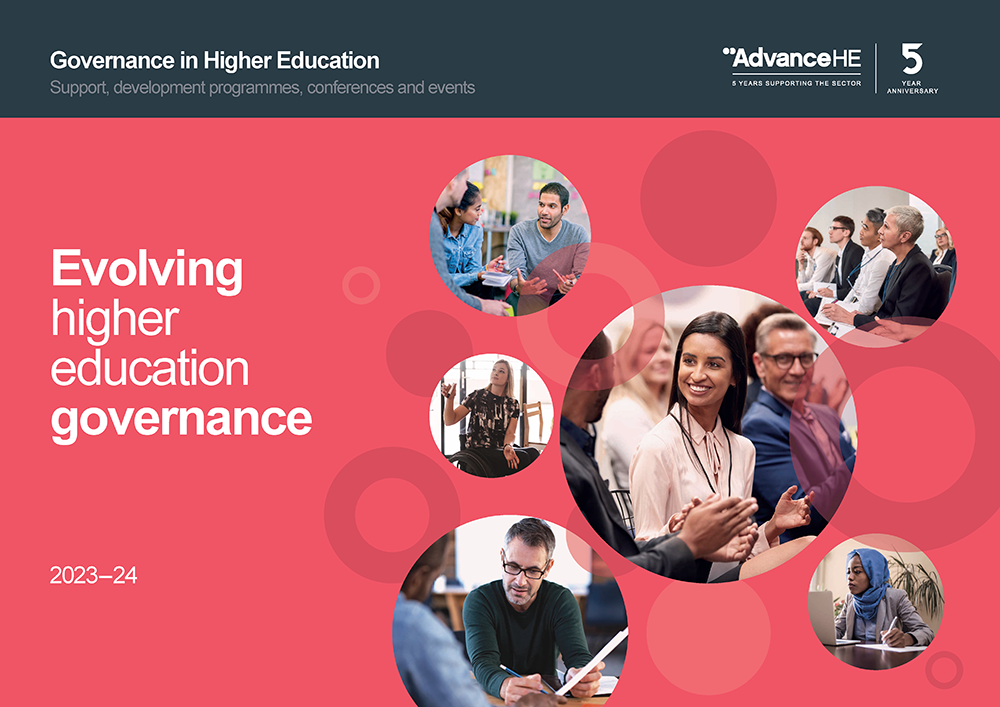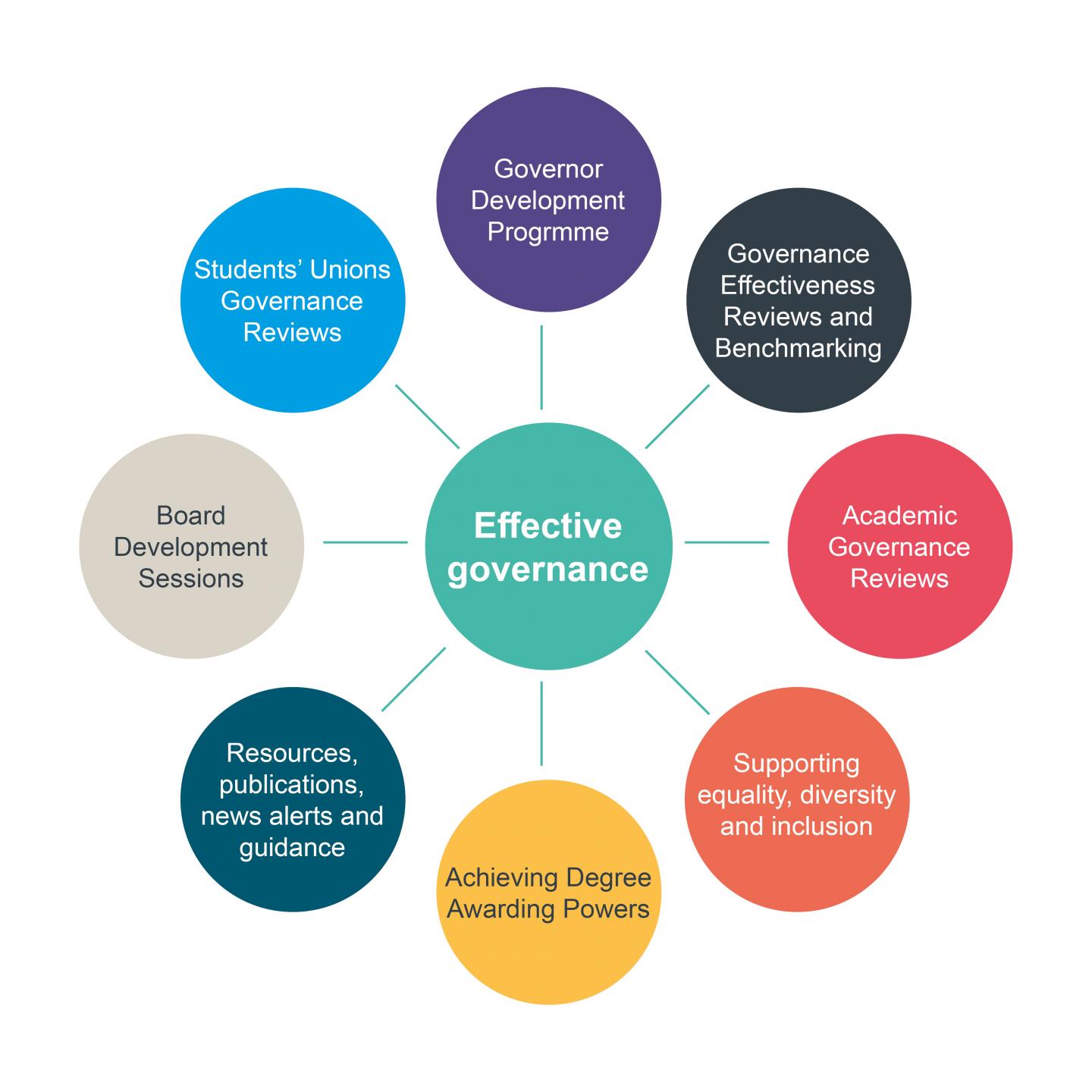
Delivering confidence and trust
Good governance helps to deliver impactful education and demonstrates confidence and trust for stakeholders.
The effectiveness of a board depends on strong foundations, based on the right behaviours, high-quality information, sound processes and skilled governance professionals. Even more so during turbulent times, when understanding what is effective in your context is essential to navigate uncertainty and be fit for the future.
Building on our sector experience, we provide access to an extensive range of resources to help support and develop governors, governance professionals, institutions and systems of governance across the world.
Want to find out more?
If you want to find out more about how Advance HE can support Boards and governors, complete the form by clicking below and we will send you our Evolving higher education governance brochure.
Evolving higher education governance brochure
Our new Evolving higher education governance 2023-24 brochure details our support for boards, governance professionals and individual governors. Find out more about our consultancy and enhancement services, the dates for our Governor Development Programme 2023-24 and upcoming exclusive content and projects for Advance HE members.

“Advance HE’s comprehensive understanding of the sector, the challenges facing governing bodies and their knowledge of best practice meant their work was extremely productive and their report insightful.”University Registrar and Secretary
How we support governance

- Governor Development Programme
- Governance Effectiveness Reviews and Benchmarking
- Academic Governance Reviews
- Supporting equality, diversity and inclusion
- Achieving Degree Awarding Powers
- Resources, publications, news alerts and guidance
- Board Development Sessions
- Students' Unions Governance Effectiveness
If you are interested in working with Advance HE's Governance Team please contact governance@advance-he.ac.uk.
Resources and guidance
Advance HE has curated a number of resources and guidance document to support Boards and governors in tackling the challenges and opportunities they face. You can access these in the following areas:
What is good governance?
In today’s turbulent environment all HE providers need high performing boards that are equipped to determine the strategic course of the organisation, safeguard its sustainability and assure standards.
Academic Governance in Higher Education
Providing assurance about academic governance – the oversight of teaching, learning and research - is a core function of the governing body.
The role of Governance in Equality in Higher Education
Governance should influence - and drive progress in – equality, diversity and inclusion (EDI) for students and staff, and wider society.
Board Recruitment and Diversity in Higher Education
Diverse and inclusive boards support institutional success, with the confidence to assure equality, diversity and inclusion matters.
Supporting Governor, Chair and Clerk Development in Higher Education
Effective governance can only happen when those involved in it – governors and staff – understand their roles and responsibilities and are supported to fulfil them.
New to Higher Education Governance
Information and support for new governors and new governance professionals.
Audit, Finance and Risk in Higher Education
Providing assurance for the sustainability of the institution – including financial health and risk management – is a core function of the governing body and its committees.
Access other resources
Our Knowledge Hub contains several resources focusing on governance, as well as, Governance News Alerts which are published frequently.
Services to support Boards and governors
Our portfolio of support aims to drive forward and evolve higher education governance. Our governance experts, from a wide range of backgrounds, stand ready to help and look forward to working with you.
Advance HE Governance Team
To help us form and deliver our support our governance experts and associates are vital. Below you will find the profiles of the Advance HE staff who work on our governance portfolio. A full list including our associates can be found here.
Who we've worked with







